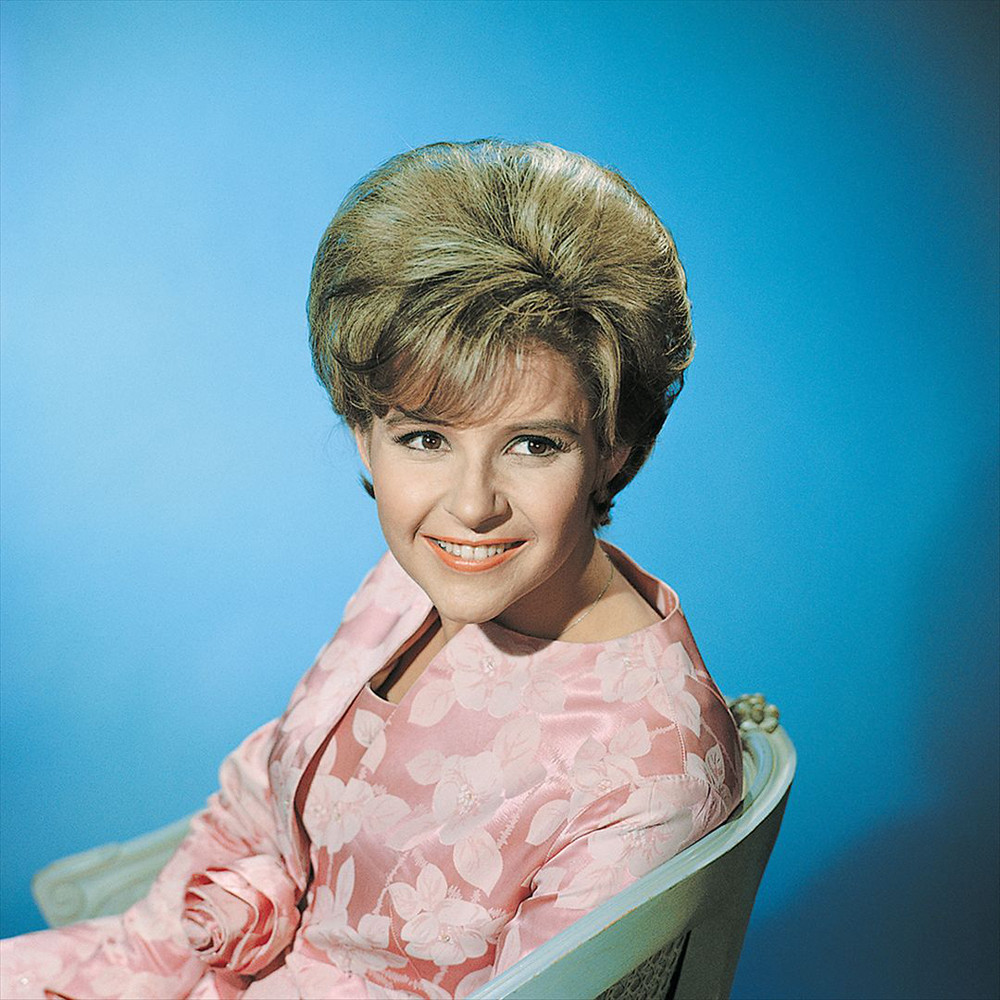“I’m Sorry” by Brenda Lee is a timeless ballad that captures the heartache of young love with a poignancy that transcends generations. Released in 1960 when Brenda Lee was just 15 years old, the song became a massive hit, reaching number one on the Billboard Hot 100 and staying there for three weeks. It also topped the charts in countries around the world, solidifying Lee’s status as a global pop sensation. Despite her youth, Lee’s emotional depth and vocal maturity in “I’m Sorry” showcased her as a powerhouse talent who could convey vulnerability and longing with striking authenticity.

The song was written by Dub Allbritten and Ronnie Self, both of whom had been working with Brenda Lee as part of her early recording career. “I’m Sorry” was initially a B-side to another song, but its powerful emotional appeal quickly captured the attention of listeners and radio DJs, leading to its elevation as the primary single. The lyrics are a heartfelt apology, with Lee expressing deep regret for hurting someone she loves. The simplicity of the lyrics is key to their effectiveness, as they tap into universal feelings of remorse and the desire for forgiveness.
Lyrically, “I’m Sorry” is straightforward yet profoundly moving. The song begins with Lee’s confession: “I’m sorry, so sorry that I was such a fool. I didn’t know love could be so cruel.” This opening sets the tone for the entire song, with its themes of regret and the pain of unintentional mistakes. Lee’s delivery of these lines is what truly sets the song apart—her voice, though youthful, carries a weight of emotion that feels both genuine and relatable. She continues to plead for understanding, acknowledging her faults and hoping for reconciliation.
The chorus of “I’m Sorry” is especially memorable, with Lee’s soaring vocals capturing the intensity of her sorrow. “You tell me mistakes are part of being young, but that don’t right the wrong that’s been done,” she sings, perfectly encapsulating the mix of youthful innocence and the harsh lessons that come with growing up. The repetition of the phrase “I’m sorry” throughout the song emphasizes the depth of her regret, making it clear that this is a heartfelt apology, not just empty words.
Musically, “I’m Sorry” is a classic example of the pop ballads of the early 1960s, featuring lush orchestration that includes strings and a gentle rhythm section. The arrangement, while simple, provides the perfect backdrop for Lee’s voice, allowing her emotional delivery to take center stage. The melody is both haunting and beautiful, with a melancholic quality that complements the song’s themes of regret and longing. The use of strings adds a layer of sophistication to the song, making it stand out in an era when many pop songs were more upbeat and rhythm-driven.
Brenda Lee’s performance on “I’m Sorry” is nothing short of remarkable, especially considering her age at the time of recording. Her voice carries a richness and maturity that belies her years, and she sings with a conviction that makes every word of the song feel deeply personal. This ability to convey such strong emotions so effectively is one of the reasons why “I’m Sorry” resonated so deeply with listeners. The song became a defining moment in Lee’s career, showcasing her as an artist with the ability to connect with audiences on an emotional level.
The success of “I’m Sorry” was a major turning point for Brenda Lee. It was not only her first number one hit but also a song that would become synonymous with her name. Despite the many hits she had throughout her career, “I’m Sorry” remains one of her most enduring and beloved songs. Its impact was such that it helped to solidify her reputation as “Little Miss Dynamite,” a nickname that highlighted both her small stature and her powerful voice.
Beyond its commercial success, “I’m Sorry” also had a significant cultural impact. It became one of the quintessential songs of the early 1960s, a period when the pop music landscape was beginning to shift toward more personal and introspective themes. The song’s influence can be seen in the many artists who have covered it over the years, each bringing their own interpretation to its timeless message of regret and apology.
In the broader context of Brenda Lee’s career, “I’m Sorry” represents a high point, not just in terms of chart success but also in terms of artistic achievement. It demonstrated her ability to convey deep emotion in a way that resonated with a wide audience, something that many artists strive for but few achieve so successfully. The song’s enduring popularity is a testament to its universal appeal and the timeless quality of Lee’s performance.
In conclusion, “I’m Sorry” by Brenda Lee is a classic ballad that continues to touch the hearts of listeners more than six decades after its release. Its themes of regret, longing, and the desire for forgiveness are universally relatable, and Brenda Lee’s powerful vocal performance elevates the song to the level of a timeless masterpiece. Whether you’re hearing it for the first time or the hundredth, “I’m Sorry” remains a poignant reminder of the complexities of love and the human capacity for both error and redemption.
Let’s sing along with the lyrics!
I’m sorry, so sorry
That I was such a fool
I didn’t know
Love could be so cruel
Oh, oh, oh, oh, oh, oh yes
You tell me mistakes
Are part of being young
But that don’t right
The wrong that’s been done
I’m sorry
(So sorry) So sorry
Please accept my apology
But love is blind
And I was too blind to see
Oh, oh, oh, oh, oh, oh, oh yes
You tell me mistakes
Are part of being young
But that don’t right
The wrong that’s been done
Oh, oh, oh, oh, oh, oh, yes
I’m sorry, so sorry
Please accept my apology
But love was blind
And I was too blind to see
(Sorry)
